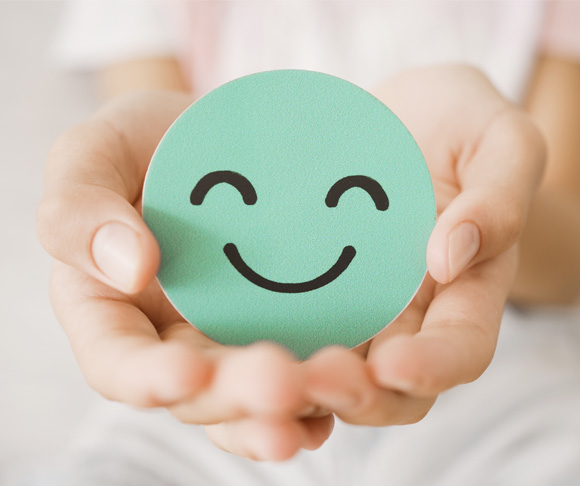Authors: Virend Somers, MD, PhD – Holly Geyer, MD

Sleep problems affect many people and are an important public health issue. In the United States, a 2020 study showed that 14.5% of US adults had trouble falling asleep most days of the week. Many of those who manage to fall asleep have difficulty staying asleep (17.8%), and issues seem to be more prominent in women. It’s estimated that 1 in 3 adults do not get the recommended amount of sleep. Despite national studies, the true prevalence of sleep disorders remains unknown. Available data suggests obstructive sleep apnea (OSA), a common cause of sleep disturbances, affects 20% of US adults. However, its estimated that more than 90% of cases are undiagnosed.
Sleep disorders are also on the rise. Between 2013 and 2016, the prevalence of obstructive sleep apnea increased more than 41%. Within a 13-year period, office visits to providers increased more than 11-fold. Nationally, sleep disorders are a rising cause of worker absenteeism contributing to an average of 2.29 days of missed work each month. This translates to an estimated $44.6 billion in lost productivity each year.
What happens in the brain when we get sleep?
When we sleep, important things happen in our brains that help us think and keep our brains healthy.
One main job of sleep is to help us remember things. This mostly happens during a type of sleep called non-REM (NREM) sleep. During NREM sleep, our brains show certain patterns, like sharp-wave ripples and slow waves. These patterns help our brains replay what we’ve learned, which is how we turn short-term memories into long-term memories.
Another important process during sleep is the movement of cerebrospinal fluid (CSF), which helps clear out waste from the brain. During NREM sleep, slow brain waves are linked to how this fluid flows, helping keep our brains clean and healthy.
Sleep also helps our brain connections change, which is called synaptic plasticity. This means sleep helps strengthen and weaken the connections between brain cells, which is important for learning and remembering. This happens during different stages of sleep, including slow-wave sleep and REM sleep, and it involves changes in certain genes and proteins.
Finally, while we sleep, our brains enter a restful state where activity slows down. This is important for keeping everything balanced and getting the brain ready for when we wake up.
In short, sleep is essential for helping us remember things, cleaning our brains, changing brain connections, and keeping everything working well.

What happens in the brain when we don’t sleep well?
When we don’t sleep well, it can hurt our brains and make it hard for us to remember things, clear out waste, change brain connections, and keep everything balanced.
One big problem is that lack of sleep makes it harder for our brains to remember things. The hippocampus, a part of the brain that helps us learn and remember, doesn’t work as well when we don’t get enough sleep. This can make it difficult to learn new information and remember things later.
Not getting enough sleep also means our brains can’t get rid of waste properly. During sleep, a special fluid called cerebrospinal fluid (CSF) helps wash away waste from the brain. But when we’re sleep-deprived, this process gets imbalanced, and harmful substances can build up, which may lead to serious brain diseases.
Sleep is also important for how our brain cells connect and work together. When we don’t sleep enough, our brain becomes overly active, and this can change how the connections between brain cells work. This makes it harder for us to learn, remember things, make decisions and pay attention. Plus, not sleeping enough can reduce the variety of connections in important brain areas, which is key for keeping our minds sharp.
Lastly, not getting enough sleep messes up the balance in our brains. Sleep helps reset and restore our brain’s connections after we’ve been awake.
Common causes of poor sleep health
Poor sleep can happen for many reasons, and some common causes include medical problems, stress, and using certain substances.
Medical Conditions: Some health issues make it hard to sleep well. For example, problems like obstructive sleep apnea, asthma, arthritis, and chronic pain (like fibromyalgia) can interrupt sleep and make it less restful. Other conditions, like gastroesophageal reflux disease (GERD) and chronic kidney disease, can also affect how well we sleep. Even life changes, like menopause or going through cancer treatments, can lead to sleep issues.
Psychological Stress: Feeling stressed or anxious can really hurt our sleep. Stress makes us feel more awake and can make it hard to fall asleep or stay asleep. When we’re stressed, it can also change the way our sleep works, reducing the deep sleep that helps us feel rested. If stress continues for a long time, it can lead to insomnia or other sleep problems.
Substances: Things we drink, or smoke can also affect our sleep. For example, drinks with caffeine (like coffee soda or energy drinks) and smoking cigarettes can make it hard to fall asleep. While alcohol might make us sleepy at first, it can actually mess our sleep later on, leading to a restless night. Other substances, like opioids and cannabis, can also cause major sleep problems, like insomnia or changes in our sleep patterns.
How does a provider diagnose it?
Doctors diagnose sleep problems by looking at a person’s medical history, doing clinical checks, and using special tests.
First, the doctor will ask questions about the person’s sleep issues, like whether they have trouble falling asleep, staying asleep, waking up too early, or if they feel tired during the day. They will also ask about any mood changes or memory problems. According to the American Family Physician, insomnia, which is when someone has trouble starting or staying asleep, is mostly diagnosed through this patient history. It is often treated with cognitive behavioral therapy (CBT).
To check for daytime sleepiness, doctors might use multiple different tools. One of the tools is called the Epworth Sleepiness Scale. To screen for obstructive sleep apnea (OSA), they can use the STOP-BANG questionnaire to see if the person is at risk. To confirm the diagnosis, they may use overnight oxygen monitoring or a sleep study called polysomnography (PSG) or a home sleep test.
Finally, devices that track sleep patterns, like actigraphy or mobile apps, can help doctors understand sleep habits, especially for people with sleep schedule issues or not enough sleep.
In summary, diagnosing sleep problems involves asking questions about sleep, using screening tools, and confirming with tests like PSG, as suggested by medical guidelines.
Common causes of poor sleep health
Poor sleep can happen for many reasons, and some common causes include medical problems, stress, and using certain substances.
Medical Conditions: Some health issues make it hard to sleep well. For example, problems like obstructive sleep apnea, asthma, arthritis and chronic pain (like fibromyalgia) can interrupt sleep and make it less restful. Other conditions, like gastroesophageal reflux disease (GERD) and chronic kidney disease, can also affect how well we sleep. Even life changes, like menopause or going through cancer treatments, can lead to sleep issues.
Psychological Stress: Feeling stressed or anxious can really hurt our sleep. Stress makes us feel more awake and can make it hard to fall asleep or stay asleep. When we’re stressed, it can also change the way our sleep works, reducing the deep sleep that helps us feel rested. If stress continues for a long time, it can lead to insomnia or other sleep problems.
Substances: Things we drink, or smoke can also affect our sleep. For example, drinks with caffeine (like coffee or soda or energy drinks) and smoking cigarettes can make it hard to fall asleep. While alcohol might make us sleepy at first, it can actually mess our sleep later on, leading to a restless night. Other substances, like opioids and cannabis, can also cause major sleep problems, like insomnia or changes in our sleep patterns.
© 1998-2024 Mayo Foundation for Medical Education and Research (MFMER). All rights reserved

Sign up for Updates
To stay up to date please provide your email address.
-
By giving us your email you are opting-in to receive news and promotions
Sign up for Updates
To stay up to date please provide your email address.
-
By giving us your email you are opting-in to receive news and promotions






